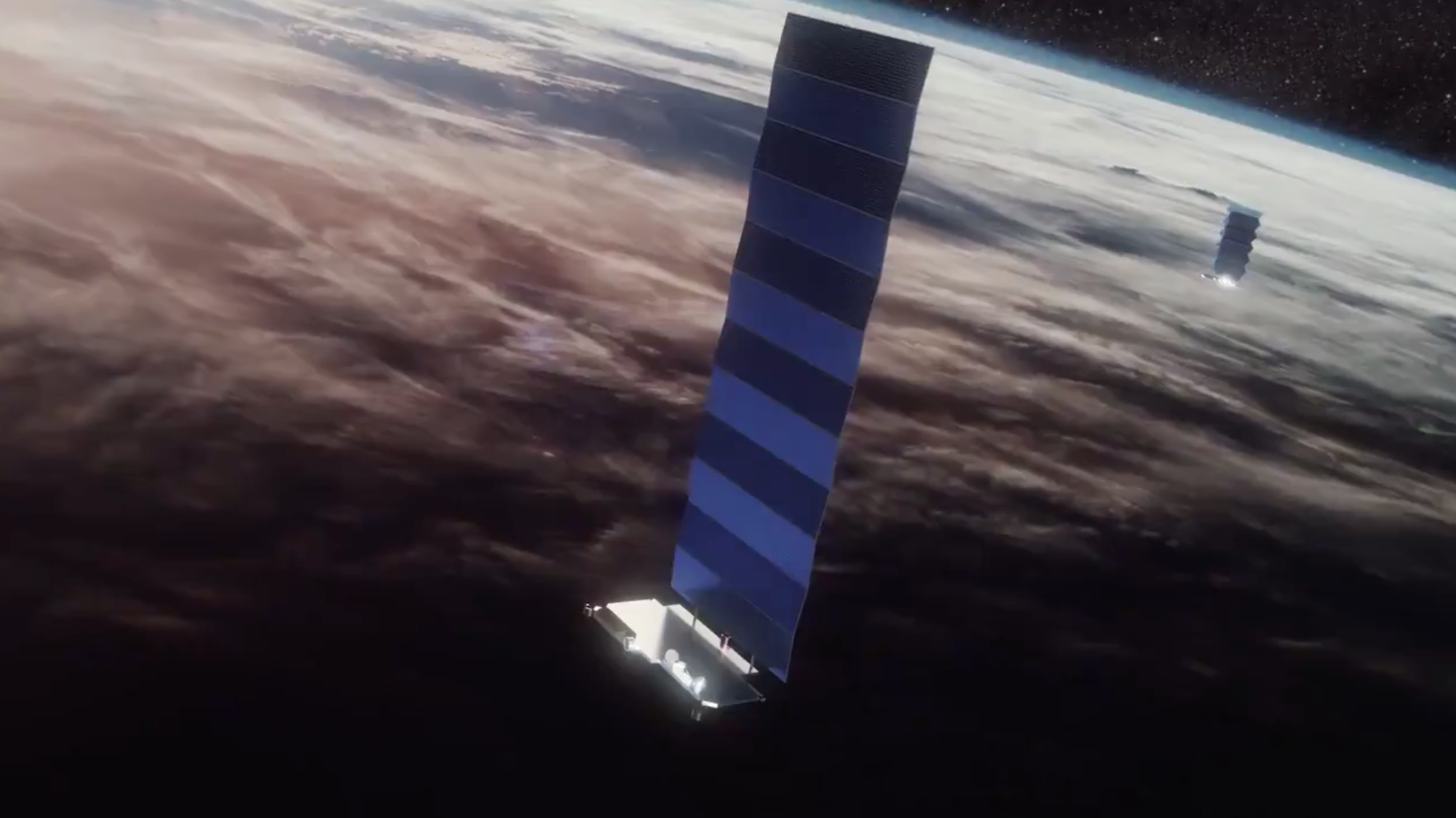WASHINGTON – The Federal Communications Commission will allow SpaceX to launch 10 Starlink satellites in polar orbit on a future mission, but has postponed the decision on a much broader modification of the SpaceX license.
In an order published on January 8, the FCC granted SpaceX permission to launch 10 Starlink satellites in a 560-kilometer orbit with a 97.6 degree incline. These satellites will be launched on a Falcon 9 no earlier than January 14 as part of Transporter-1, a small shared transport mission.
SpaceX had been lobbying the FCC for weeks for permission to launch Starlink satellites on a polar orbital plane, while the FCC considers a modification of the company’s license to reduce the orbits of satellites originally authorized to higher altitudes. This included a November 17 request to launch 58 satellites on a single polar orbital plane, citing “an opportunity for a December polar launch” that he did not identify.
In a January 5 filing with the FCC, SpaceX said it spoke with FCC officials the day before about this request. “SpaceX has confirmed that, if it receives the proper authorization, its next Transporter-1 mission will include 10 Starlink satellites targeted for operation in polar orbits,” said the company.
SpaceX argued in documents that adding at least a few satellites to the polar orbits would allow it to start operating in Alaska, which is not in the coverage area of existing Starlink satellites launched in mid-tilt orbits. The company said in its November document that “the launch to polar orbits will allow SpaceX to bring the same high-quality broadband service to the most remote areas of Alaska that other Americans have come to depend on, especially as the pandemic limits the opportunities for personal contact. ”
Other satellite operators have opposed the move. In a Nov. 19 filing, Viasat said “commercial convenience” was not a sufficient reason for the FCC to grant SpaceX permission to launch satellites in polar orbit, raising concerns about the reliability of Starlink satellites and the risks of orbital debris that they represent.
The FCC, in its request, concluded that allowing SpaceX to launch the 10 Starlink satellites in polar orbits was in the public interest. “We found that the partial concession of ten satellites will facilitate the development and ongoing testing of SpaceX’s broadband service in high-latitude geographic areas in the immediate term, pending further action to address the arguments in the registry regarding granting the modification as a whole and total subset of polar orbiting satellites ”, declared the request.
He rejected Viasat’s opposition to the request, declaring that allowing the 10 satellites “poses no concerns regarding the issues raised by commentators”. This included concerns about orbital debris on failed Starlink satellites. “We concluded that the addition of these ten satellites is unlikely to have any significant incremental effect on the operations of other satellites at the relevant orbital altitudes,” said the request.
The FCC, however, postponed a decision on the general request to modify SpaceX’s license to decrease the orbits of these satellites. In the application, the FCC did not state when it expected to decide on the full application.
